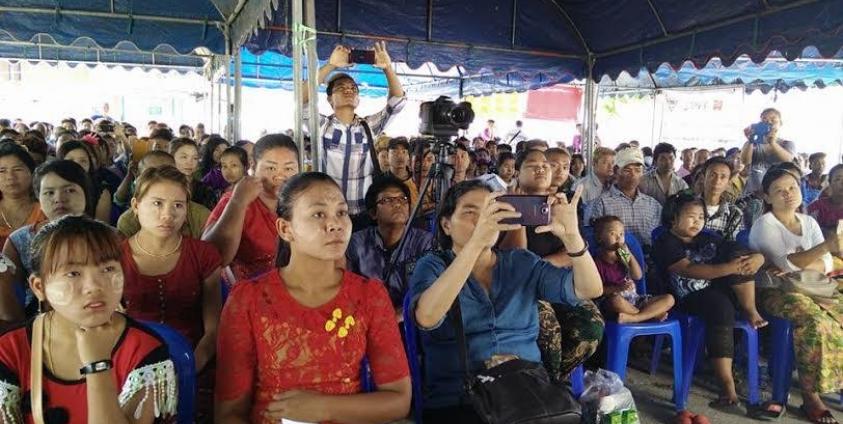At a May 1 ceremony marking International Workers’ Day, activists in Thailand demanded better conditions for Myanmar migrant workers.
U Moe Kyaw, an officer at the Yaung Chi Oo Workers’ Association, told KIC News that Myanmar migrant workers still do not receive the government-stipulated minimum wage and are made to work beyond the hours established by Thai law.
“Seventy-five per cent of Burmese workers still don’t receive 305 baht, the minimum daily wage set down by the Thai Labour Ministry for Mae Sot area. They also have to work between ten to eleven hours a day instead of eight hours a day as mandated by law,” he said.
U Moe Kyaw said employers and managers are knowingly flouting the labor laws and exploiting the migrant workers. He said both employers and the Thai government should be responsible for enforcing fair working conditions and respecting migrant workers’ rights.
Over 400,000 Myanmar migrant workers are employed in the nine districts of Tak Province, Thailand. Mae Sot district alone has over 200,000 workers. The majority of the workers are employed in agriculture and livestock breeding industries and also work in factories, according to labor rights activists.
“I want Burmese migrant workers to receive the full salary mandated by law. Arresting workers for not having work permits when they are travelling between provinces [in Thailand] is totally against Thai law. Work permits should only be inspected at the workplace,” said Ko Thar Gyi, managing director of an organization providing assistance to Myanmar migrants.
The May 1 ceremony in Mae Sot was organized by the Yaung Chi Oo Workers’ Association. Over 400 people, including workers, local authorities, NGOs and labor activists attended.
International Workers’ Day, or Labor Day as it is also called, is marked every year on May 1 in remembrance of the Chicago factory workers who staged mass protests in 1886 in order to demand an eight-hour day and improvement in working conditions. Workers around the world continue to lobby for the right to an eight-hour workday.
Translated by Thida Linn
Edited by Laignee Barron








